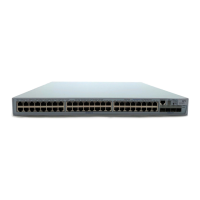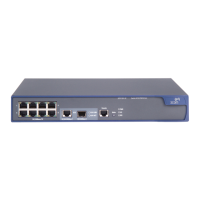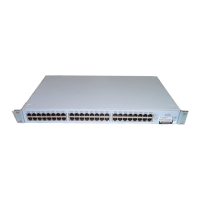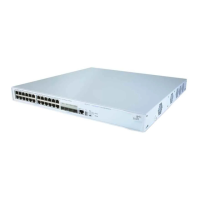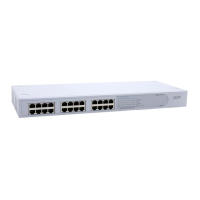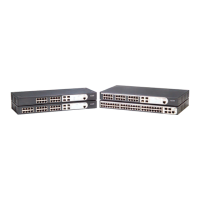81
TFTP CONFIGURATION
When configuring TFTP, go to these sections for information you are interested in:
■ “TFTP Overview” on page 1001
■ “Configuring the TFTP Client” on page 1002
■ “Displaying and Maintaining the TFTP Client” on page 1003
■ “TFTP Client Configuration Example” on page 1003
TFTP Overview
Introduction to TFTP The Trivial File Transfer Protocol (TFTP) provides functions similar to those provided
by FTP, but it is not as complex as FTP in interactive access interface and
authentication. Therefore, it is more suitable where complex interaction is not
needed between client and server.
TFTP uses the UDP port 69 for data transmission. For TFTP basic operation, refer to
RFC 1350.
In TFTP, file transfer is initiated by the client.
■ In a normal file downloading process, the client sends a read request to the
TFTP server, receives data from the server, and then sends the
acknowledgement to the server.
■ In a normal file uploading process, the client sends a write request to the TFTP
server, sends data to the server, and receives the acknowledgement from the
server.
TFTP transfers files in two modes:
■ Binary for program files
■ ASCII for text files.
Implementation of TFTP
n
Only the TFTP client service is available with your device at present.
Figure 300 TFTP configuration diagram
Switch
TFTP Client
PC
TFTP Server
IP network
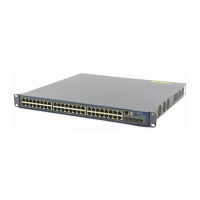
